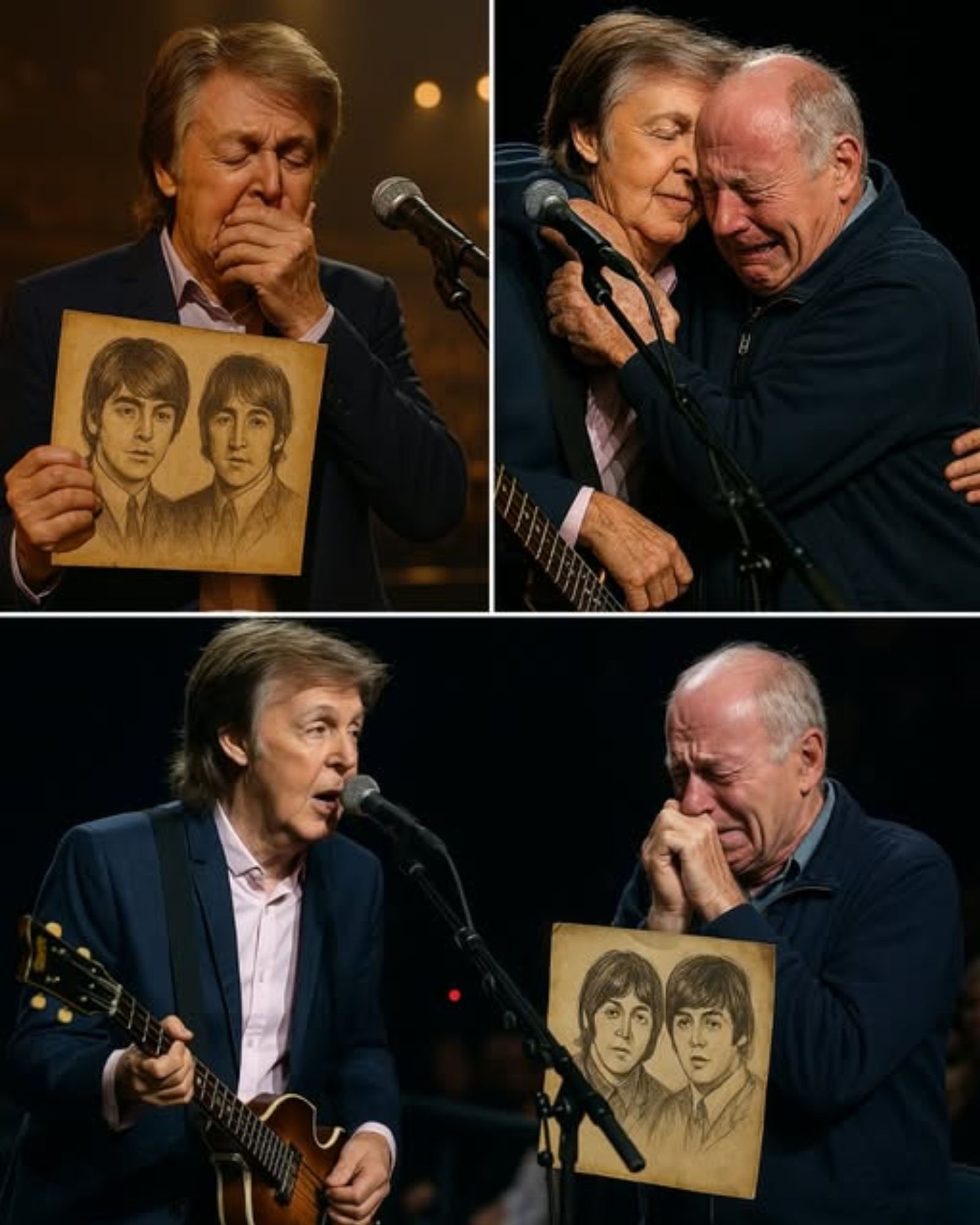What began as a small, low-key performance on New York’s Upper West Side quickly became a night no one would forget.
There were no big lights, no flashy effects—just Paul McCartney, his guitar, and a few hundred lucky fans gathered for an intimate benefit concert filled with music and memories.
Midway through the set, Paul began playing “Here Today,” the tender song he wrote for John Lennon after his passing. It’s always emotional—but this time, something shifted.
In the front row, Paul spotted an elderly man, sitting perfectly still, quietly weeping. Clutched in his hands was an old sketch: two teenage boys—Paul and John—sitting on a Liverpool sidewalk, guitar cases at their feet, caught mid-laughter. Paul paused for a second. He knew that scene. He had lived it.
Though his voice caught for a moment, he finished the song. The crowd cheered. But Paul’s mind was elsewhere—on the man with the drawing.
Backstage, he turned to his team and said, “Could someone please find that gentleman?”
A short while later, the man arrived. Neatly dressed in a worn blazer, hands shaking slightly, he approached Paul with quiet humility.
“I didn’t mean to disrupt anything,” he said gently.
“You didn’t,” Paul replied with a smile. “You brought something special.”
The man nodded and pulled a small envelope from his pocket. “I was John’s schoolmate. We weren’t close friends, but once we landed in detention together. He talked about starting a band with a friend named Paul—someone who, in his words, ‘really got it.’”
Paul chuckled softly. “That sounds like John.”
Inside the envelope was a fragile sheet of paper. Written in John’s familiar handwriting was a single line:
“If I go first, don’t cry—I’ll still play rhythm when you sigh.”
Paul froze. The words hit him hard. They were simple, almost like a poem passed in class, but full of love and legacy.
“Is this real?” he asked.
“I believe so,” the man said. “I kept it for 60 years. I always thought… it wasn’t meant for me. It was meant for you.”
Paul’s voice caught. “Thank you. This… this means everything.”
The man gave a kind smile. “Just keep playing.”
Later, when the venue was empty and silent, Paul returned to the stage alone. The house piano sat under a dim light. He laid the note beside him, took a breath, and began to play—softly, reflectively.
And maybe, just maybe, in the stillness of that empty theater, another rhythm joined him. A quiet echo of a lifelong friend still keeping time, just as he always promised he would.
